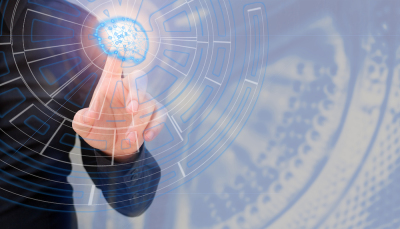Is your church AI ready? 3 ways culture will change

The Church has had a complicated history with technology. Ever since the first Bible rolled off Gutenberg’s press, God’s people have grappled with the implications of new communication technologies. But technological advancements, from stone to smart tablets, have left an indelible mark on culture and faith.
Regardless of whether we like or dislike a new technology, history shows us that cultural change accompanies every major technological shift. And it’s happening again with artificial intelligence (AI).
The current explosion of AI tools is built on over 20 years of research. Each technology shifts culture differently, but wise leaders can spot patterns and prepare well so that the Church can responsibly and effectively respond to what’s coming.
While some envision AI as a universal tool for all, others fear its potentially negative consequences, such as more toxic social media, job eliminations, and even the end of humanity.
At Gloo, we believe there is a moral imperative to leverage technology, including AI, for the greater good. Tools like AI should better enable, not replace, relationships and advance human flourishing. We’re already seeing robust and thoughtful discussion, tools and application for the Church and AI, as evidenced by the AI & The Church Hub.
We’ve been here before, and not that long ago. It’s almost hard to remember life before the Internet; its connectivity and patterns have affected nearly every aspect of life today.
By examining the impact of the Internet in hindsight, church leaders can better prepare for how the acceleration of AI could shape the future of information, interactions and identity. There are three key areas to consider:
AI will shape information
AI brings a seismic shift to how people discover information, spread ideas and consume content. Compared to the days before the Internet, we are accustomed to quick access to information and instant gratification. Search engines and news feeds dramatically reduced trips to the library and put the encyclopedia publishers out of business.
We no longer rely solely on traditional media sources but have many online platforms and search engines that provide instant access to worldwide information. We are navigating a sea of content, and now AI provides even faster access to the discovery, spread and consumption of information.
With AI’s ability to predict our needs and provide instant access to vast amounts of data, discerning the source and trustworthiness of ideas is more challenging than ever.
So then, pastors and ministry leaders have a lot to consider: Will AI change the attention span and expectations of the people they serve? What needs to change if a pastor’s content alone is no longer his or her advantage? How can church leaders help people apply biblical truth and discernment with what they see and hear?
AI will affect interactions
AI also has the power to reshape personal and professional interactions.
The Internet has influenced our personal sense of contentment by exposing us to idealized versions of others’ lives on social media. These versions can create feelings of inadequacy and contribute to the pursuit of external validation, impacting our overall satisfaction and well-being. AI could perpetuate curated images and perfectionist tendencies, affecting our overall well-being.
And like the Internet before, professionally AI can transform work dynamics, presenting opportunities for remote work and cross-border collaboration.
The Internet democratized power by giving a voice to individuals previously marginalized or excluded from traditional media channels. Similarly, AI appears poised to level the playing field further, challenging conventional models where a few hold influence.
Church leaders will need to think about: How can they model or challenge the people in their community to have a sense of peace and contentment? How can church leaders better support their people as they seek to live out their Christian faith and identity at work? And how can they support relationships between their people, whether they exist in person, online or both?
AI will influence how we perceive ourselves
The Internet revolutionized self-expression and exploration, blurring the lines between physical and digital existence. Our self-perception became less about what group or community we belonged to and more about the identity we created for ourselves via avatars, online profiles, etc. AI can extend this kind of exploration, leading to more confusion.
The Internet and its seemingly unlimited amount of information reshaped the way we thought about what it means to be human, raising existential questions about who we are, consciousness and connection. While AI leverages that same body of information, even seemingly bringing it to life, it ultimately lacks the essence of human experience: the feelings, emotions, and spirit of being made in God’s image.
Again, pastors and ministry leaders have a lot to consider: How can they show people why and how to ground their identity in Christ in a world of self-made or “made for you” identities? How can they use these technological advances to draw people back to the sacred place humans have in God’s story? How will they ensure people have the biblical literacy and discernment to spot any message that runs counter to God’s plan?
AI is here to stay, but we’ve been here before. Remember, God is not surprised by AI, and we’re fortunate the Internet and information revolution gave us a bit of a blueprint for what’s coming.
The Church has a crucial role in helping prepare people for these changes and their ethical considerations, and actively engaging in discussions around AI governance, ensuring that it promotes justice, equality and integrity.
In the Apostle Peter’s first letter, he urges the Church to “be prepared at all times to explain the reason for our hope.” The Holy Spirit inspired these words two thousand years ago, knowing the Church today could be a beacon of hope while also navigating the new AI era.
Brad Hill has been deeply involved in solving technology challenges for the Church for over 20 years. He serves as the Chief Solutions Officer at Gloo, the trusted platform that releases the collective might of the faith ecosystem.




























